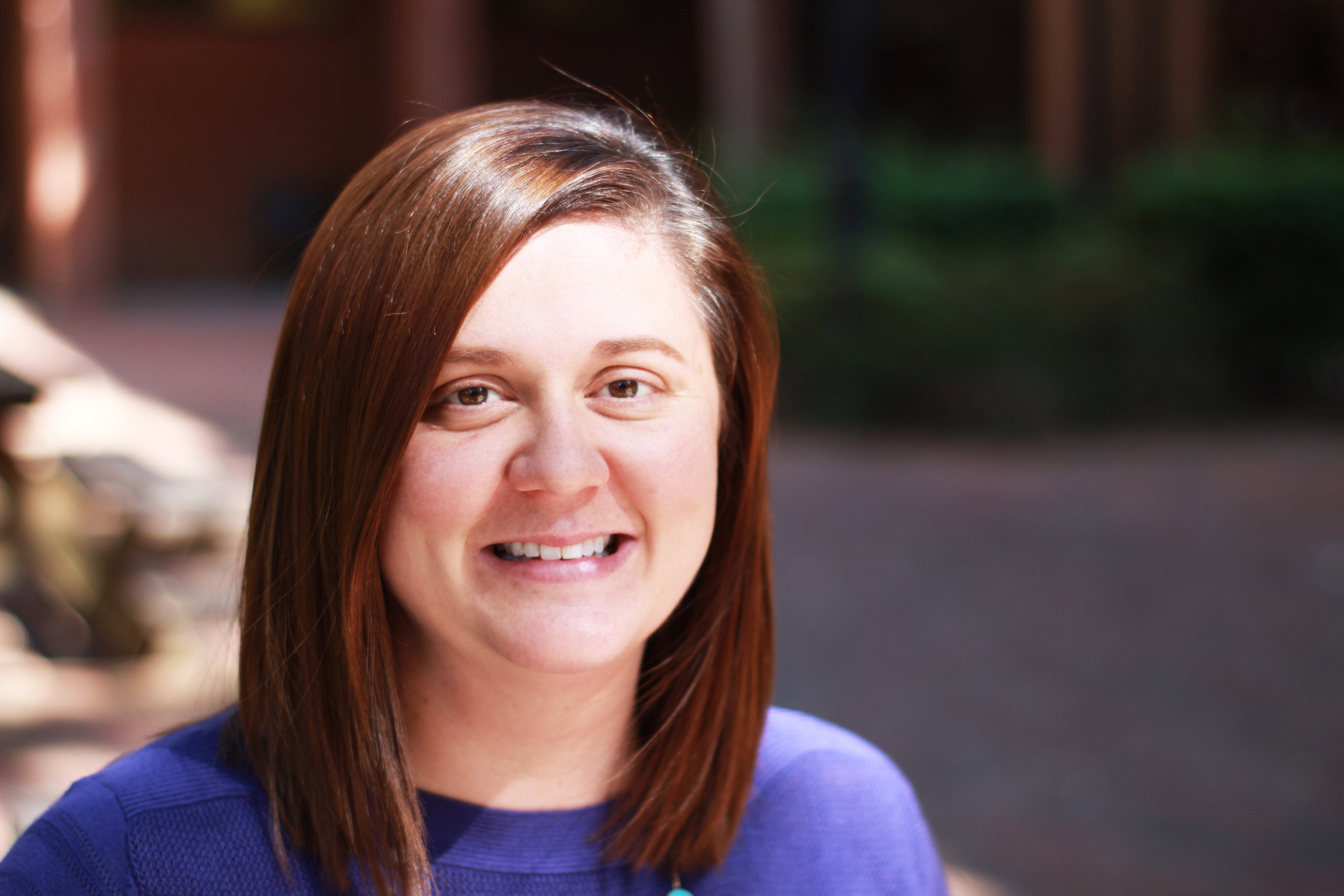
For early interventionist Jennifer Harrington, studying at the Anita Zucker Center has provided nothing short of a ‘great opportunity’ to be immersed in the field of early childhood. When not working on the Institute of Education Sciences-funded Goal 3 Embedded Instruction for Early Learning or Early Steps Professional Development projects, you can often find her spending time with family. Recently, Harrington took some time out of her day to speak about her experiences with the Anita Zucker Center for Excellence in Early Childhood Studies, and to share her insights about the early childhood field.
Alexis Brown: Hi Jennifer, thank you so much for agreeing to speak with me today. Let’s start off the interview by discussing your background.
Jennifer Harrington: Sure! So, currently, I’m a second-year student in the Special Education doctoral program with a concentration in early childhood studies.
However, I’ve been working in the field since 2002 — in high school, I worked with young children with disabilities. Following that, I worked in special education classrooms and as a provider for Florida Early Steps (Part C program in Florida for infants and toddlers with or at risk for disabilities).
AB: What’s something about early childhood that most people don’t know?
JH: I would say, early childhood education and care is complex. For instance, early learning and development, family leadership and support, and child and family health are all equally important considerations. Also, positive interactions and experiences are critical for the development of young children.
AB: What’s the coolest thing about your work at the Anita Zucker Center?
JH: Oh well, that’s easy. The coolest thing is that I get to be a part of applied research and projects within our own community and state — both of which are really important to me. I enjoy working with faculty members as well as post-docs and other doctoral students on different projects — such as the Embedded Instruction, Goal Three project, and the Early Steps Professional Development project. Both of those have provided great experiences and learning opportunities. They also make an impact with preschool teachers, early intervention providers, and families within our state.
“I want to continue applied research and working within communities on projects that directly impact families and young children with disabilities. I would like to help young children with disabilities and their families receive services in a timely manner, and support parents in using evidence-based strategies that we know are effective.”
AB: Can you discuss a little about your role in various Center projects?
JH: As part of the Embedded Instruction project, I was a coach for Cohort 2 teachers. Using the Practice-Based Coaching framework initially developed at the Center, I supported preschool teachers to implement evidence-based practices with their students. Some of my other roles on the Embedded Instruction project include: Independent Variable data processing, score-checking different measures, and coding learning targets. As part of the Early Steps Professional Development project, I attend weekly UF and FSU conference calls, document weekly meeting notes, attend provider and lead implementation coach trainings, and data processing.
AB: What’s a way that your work has impacted your perspective on early childhood?
JH: My experiences gained through applied research and statewide projects continue to expand my perspective on early childhood education and care. Early childhood experiences greatly impact future outcomes. Supporting individuals who interact regularly with those children is critical. Through situated learning experiences, conferences, early childhood summits, and mentorship from faculty members, I continue to enhance my skills in organizational, leadership, and competency areas that promote solving practical problems families and teachers of young children with disabilities face in their homes, classrooms, and communities.
Also, I was fortunate enough to be invited to the Starting Ahead, Staying Ahead: Early Childhood National Summit last year, and that was another great opportunity where I was able to see leaders in our field converge and talk about important issues surrounding policy and early childhood.
AB: What’s a challenge that you’d like to tackle for the benefit of children and families?
JH: I want to continue applied research and working within communities on projects that directly impact families and young children with disabilities. I would like to help young children with disabilities and their families receive services in a timely manner, and support parents in using evidence-based strategies that we know are effective.
Story and portrait by: Alexis Brown
